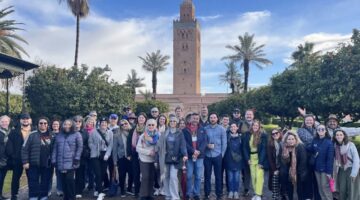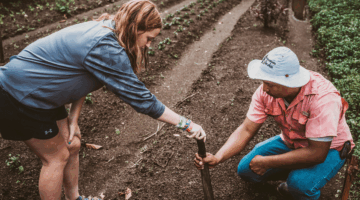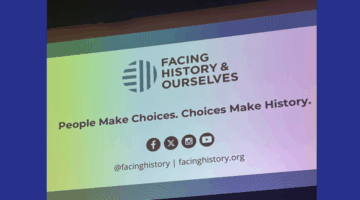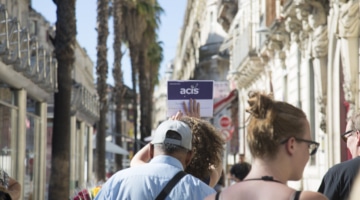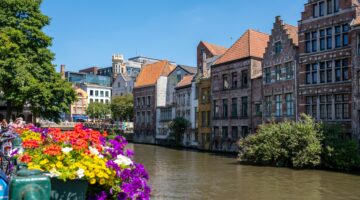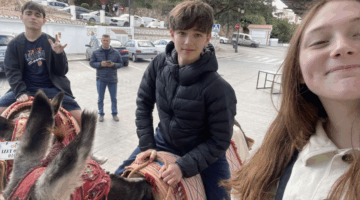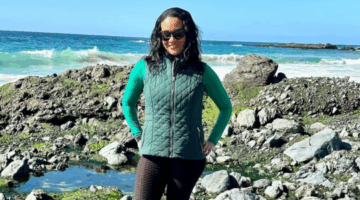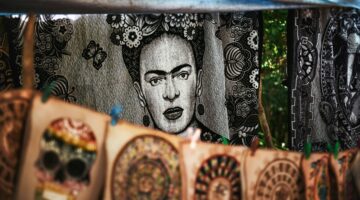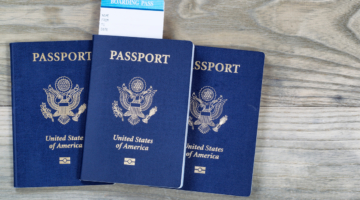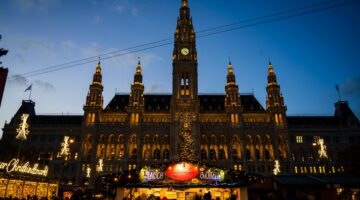How Educational Travel Differs From Tourism
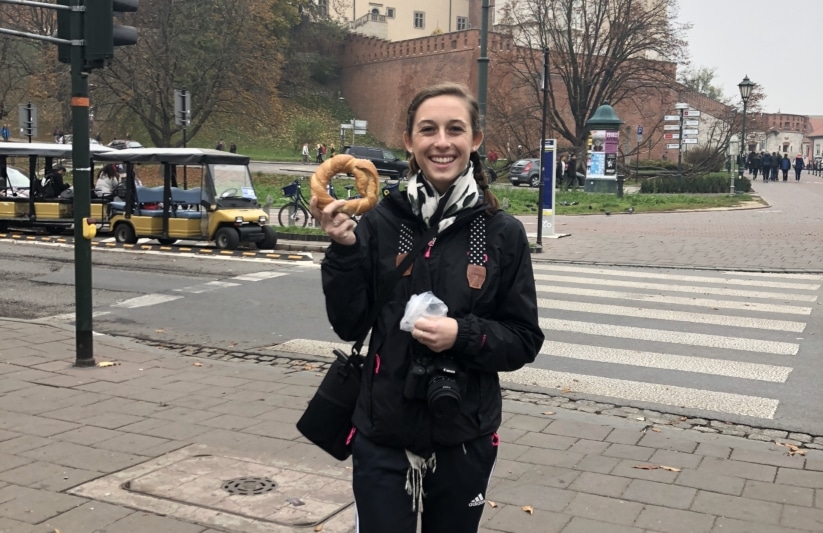
Beth Pfohl is an International Program Coordinator at ACIS. She shares her perspective on what makes educational travel different than your average trip.
—
Tourism (n): The practice of traveling for recreation
Travel (n): A journey, especially to a distant or unfamiliar place
Educational Travel (n): Undertaking a trip with the intention of learning in context
Diction is always important, but when it comes to the travel industry, it’s next level. After all, a trip is a financial investment, so you want to make sure you’re getting exactly what you want.
Educational travel is one of my passions (which makes it easy to understand how I ended up at ACIS), and recently I have found myself being asked what exactly “educational travel” entails.
Of course, there is a lot of overlap between the different types of travel that I laid out above, so I thought it would be best if I set out some examples from my own life.
Tourism – A Family Trip to Hawaii
When I was younger, my immediate family went on a vacation to Hawaii. We stayed in a resort, and most of our activities were based within our hotel bubble: We lounged on the resort beaches, swam in the resort pools, attended the resort events, etc, and though we sometimes ventured off the grounds for some experiences – like a helicopter ride over the rain forest and volcano caldron, surfing lessons, a tour that took us to black-sand beaches and a macadamia nut cookie factory – we always returned to the resort.
For me, this is tourism – the practice of traveling for recreation.
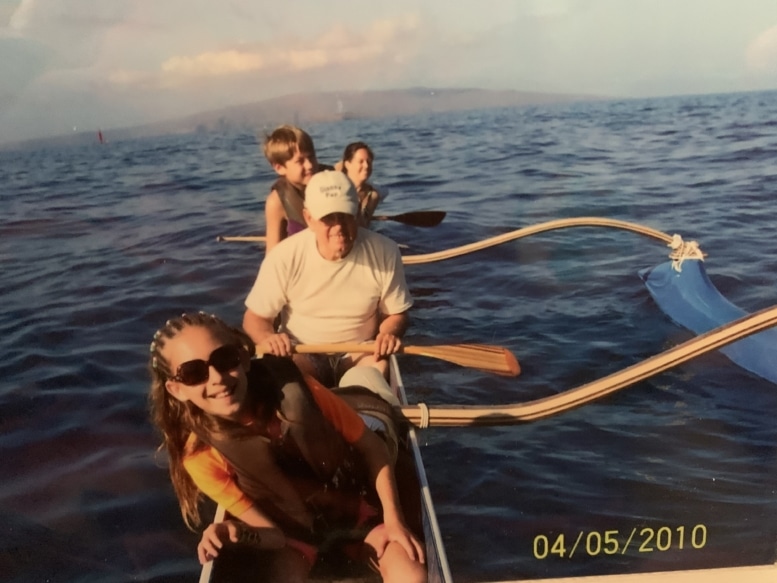
Travel – A Weekend in Florence
Next is the time I flew to Italy for a weekend while I was spending a month studying in London. We had one free weekend from course-related activities, and my friend and I decided to fly to Italy to cross another country off our lists.
Almost this entire trip was planned out of travel books, which is why I consider this trip to fall under the Travel category. We wanted to go to a new place we knew almost nothing about, but we wanted to do the “main attractions” (Colosseum, Boboli gardens etc), with some authenticity courtesy of our travel books drizzled into our itinerary. But of course, you can only learn so much about a place based on the advice of mass-produced books. My friend and I had an amazing time seeing the sites; however, I would say I was left craving a more local Italian experience.
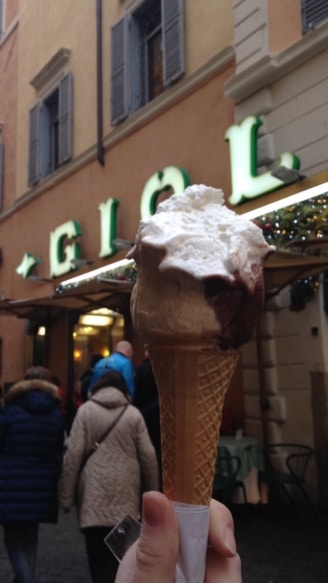
Educational Travel – A local experience in Warsaw
The final trip I want to talk about was a brief few days spent in Warsaw, Poland. This time I was studying abroad for a semester in Luxembourg, and I had a free, long weekend of travel before I had to be in Slovenia for class mid-Monday.
Friday morning when we arrived in Warsaw, we had booked a private tour with a local guide who was going to show us around. On this walking tour, the guide told us all about little pieces of history we would have never found in a book. I remember briefly stopping in the middle of a park, and he pointed out a crumbling piece of stone which I hadn’t even noticed. It turns out that this was part of the foundation of the old city wall. He took the time to explain the history of the wall and why it was important before leading us to the Old Town Gate which is the only part of the wall that remains standing. He also took us through what used to be the Jewish ghetto, told us stories of heroes who risked their lives trying to help those in the ghetto, suggested his personal favorite restaurants and their best dishes, and so much more over the course of three hours.
The best thing about this tour was the personal aspect. We had an expert right there to ask any question that came into our heads, and after the tour, I had a bunch of places I wanted to explore more on my own now that I knew some of the foundational history.
During our self-exploration, we chose a random restaurant that looked delicious, and I ended up having one of the best meals of my whole time abroad. Then after dinner, we stumbled into a pop-up market where I fell in love with Kürtőskalács, a sweet spiral pastry, and ended up dancing polka with locals to Polish folk music.
With any trip to Warsaw, it’s almost necessary to visit Auschwitz/Birkenau to pay your respects, so once again we booked a tour with a local guide. It was really interesting to see how the information we learned on our city tour was inadvertently built upon during our tour of the concentration camps. I learned more and experienced an even greater emotional impact because of the foundation that had already been set.
After three days in Warsaw (also one pigeon attack and one bout of food poisoning), I felt like I had seen much of what the city had to offer, and if I go back to Warsaw in the future, it would feel like a “visit back” rather than a “trip to.”
The very foundation of this trip was built on learning from locals. This was actually the plan all along since my friend whom I was traveling with wanted to learn about her Polish heritage. So we skipped the books and instead talked to people: locals, guides, other travelers at our hostel, waiters, etc.
By doing so, we transformed this trip from travel to educational travel.
The funny thing is, once I went on a few trips with the intention of learning, I found that this was my favorite way to travel.
We often in the ACIS office talk about the f-word of travel: flexibility.
For me, discovering what sets educational travel apart makes every part of my travel experiences more flexible. Instead of having an itinerary down to the minute, I make sure to give myself leisure time where I can explore and see what’s calling to me rather than what a book says I should care about on my trip.
It’s freeing in a way, and you never realize how much you have learned until after you’re home.
So think about what type of travel appeals to you. Do you want a vacation, a story, an experience, or a combination of all three?

